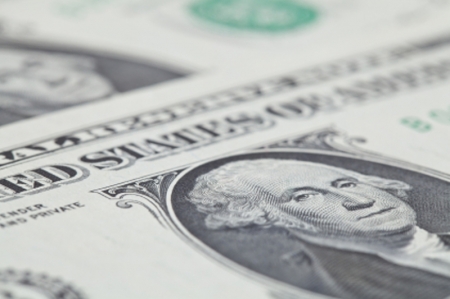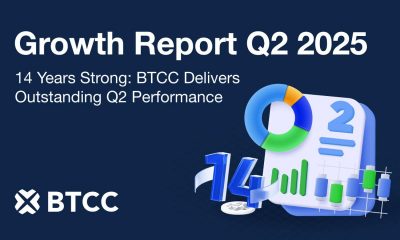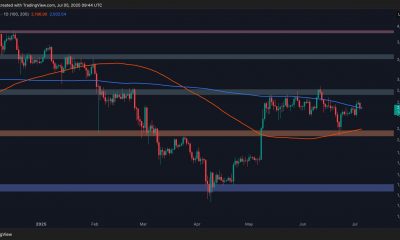Forex
Dollar slips lower ahead of CPI; euro awaits ECB meeting

Investing.com – The US dollar drifted marginally lower Monday, with last week’s jobs report pointing to another Fed cut later this month, but losses were minor amid renewed uncertainty in the Middle East.
At 04:00 ET (09:00 GMT), the Dollar Index, which tracks the greenback against a basket of six other currencies, traded 0.1% lower to 105.550.
Dollar rally looks tired
The dollar rally that followed Donald Trump’s victory in the US presidential election is starting to look a little tired as the year draws to an end, with the Federal Reserve widely expected to cut interest rates once more next week even after a rebound in jobs growth in November.
“Much of the US dollar-positive story is in the price – from strong US data to trade and fiscal risks – and positioning is fairly long dollars,” analysts at Morgan Stanley (NYSE:) said, in a note.
However, the has only dropped by less than 0.5% over the course of the last week, as it retains support as a safe haven, especially given the heightened geopolitical tensions.
Rebel forces in Syria have ousted President Bashar al-Assad, taking control of the capital Damascus, as the Middle East remains in turmoil, while the war between Ukraine and Russia continues to rage.
Add to this the political instability in South Korea, with the country widely seen as a pillar of the East Asian economy, and it’s no surprise the US currency retains supporters.
“There seems little reason to reduce long dollar positions right now and after two weeks of consolidation, we see it as more likely that the dollar will resume its bull trend,” said analysts at ING, in a note.
US data for November is due on Wednesday, and could provide more insights on the Federal Reserve’s interest rate trajectory.
Euro awaits latest ECB meeting
In Europe, edged higher to 1.0579, with traders awaiting the latest rate decision from the European Central Bank on Thursday, its final policy meeting of the year.
The ECB is widely to agree to another 25-bps rate cut, its fourth such cut this year.
Eurozone inflation ticked higher in November, but still appears to be heading towards the ECB’s 2% target, with some signs that wage pressures are easing.
Since the ECB’s last meeting in October tariff risks for Europe have risen after Trump’s election win; France and Germany are grappling with political turmoil; business activity has slowed sharply, and the euro has weakened.
“There certainly seem few reasons for the ECB to be cheerful right now, even though the hard data is holding up better than expected,” ING said.
traded 0.3% higher to 1.2776, with sterling holding up reasonably well as the attempts to cope with inflation proving to be stubbornly high.
in the UK went up by 2.3% in the 12 months to October, which means inflation is back above the Bank of England’s target.
The UK central bank cut rates in November for the second time in 2024, and is seen easing monetary policy more slowly than its main rivals in 2025.
BOJ to hike next week?
In Asia, gained 0.3% to 150.44, after revised data showed that the Japanese economy grew slightly more than expected in the third quarter. However, the reading was well below the prior quarter’s rise.
Investors remain divided on whether the will hike rates next week, after Monday’s economic growth reading.
rose 0.1% to 7.2748, after data showed that Chinese contracted more than anticipated in November, despite recent stimulus efforts. Producer price inflation in November also remained subdued.
The focus this week will be on China’s annual Central Economic Work Conference for cues on more stimulus measures from the country’s central bank.
climbed 0.9% to 0.6444 ahead of Tuesday’s Reserve Bank rate decision. The is expected to keep rates unchanged but may temper its hawkish stance amid signs of weakening economic conditions in Australia.
rose 0.5% to 1,431.49, hovering near a two-year high mark as South Korea’s political crisis intensified after prosecutors launched a criminal investigation into President Yoon Suk Yeol on Sunday, over his failed attempt to impose martial law in the country last week.
Yoon survived an impeachment vote in the opposition-controlled parliament on Saturday, but the head of his own party said that Yoon would be sidelined before eventually resigning.

 Forex3 years ago
Forex3 years agoForex Today: the dollar is gaining strength amid gloomy sentiment at the start of the Fed’s week

 Forex3 years ago
Forex3 years agoUnbiased review of Pocket Option broker

 Forex3 years ago
Forex3 years agoDollar to pound sterling exchange rate today: Pound plummeted to its lowest since 1985

 Forex3 years ago
Forex3 years agoHow is the Australian dollar doing today?

 Cryptocurrency3 years ago
Cryptocurrency3 years agoWhat happened in the crypto market – current events today

 World3 years ago
World3 years agoWhy are modern video games an art form?

 Commodities3 years ago
Commodities3 years agoCopper continues to fall in price on expectations of lower demand in China

 Economy3 years ago
Economy3 years agoCrude oil tankers double in price due to EU anti-Russian sanctions



























